A farmer asked me at the weekend what is all this fuss about contracts and young bull testing.
The genesis of the story this year goes back to just before Christmas, when Livestock Improvement Corporation (LIC) was contemplating bringing out contracts that farmers needed to sign before purchasing semen not allowing them to sell bull calves to any other AI company. At that stage, the board of ICBF reacted negatively, suggesting the LIC contracts were not in Irish dairy farmers’ best long-term interests.
Their main issue of contention was that the LIC contract stopped the sale of potentially high-value, high-EBI bulls into the national breeding programme. Two of the other issues flagged at that stage were the duration and the transfer of contract if an animal was sold off the farm.
It subsequently emerged that the National Cattle Breeding Centre (NCBC), which represents Munster AI and Progressive Genetics, had established 33 whole-herd contracts with individual herds that again tie up breeding stock for a number of years and are transferable between herds.
These are called “keystone” contracts and if farmers sign up, they have females genotyped for free and are advised what sires to use. For all that, they must give first refusal to NCBC if a bull calf is born which might make its way into a bull stud. In the proposed LIC contract farmers would have been precluded from selling the stock to another AI company.
This of course isn’t the first we have heard about contracts. Individual cow contracts where an AI company makes a deal with a farmer about the offspring of an individual cow have been around for years.
The other development in recent years was the establishment of Forge Genetics. Essentially this is a group of dairy farmers with very good cows, mainly based in Cork, that created a company that sells stock bulls and semen. The best bull calves are collected from their farms, reared, and the best bull calves go into AI with Bova AI in Limerick. Bull calves not for AI are sold off as stock bulls.
Cheap semen
The farmers in the group effectively get cheap semen for their own herds as part of the deal. The fact that Forge gathers up the best bull calves and has an agreement among themselves is effectively a contract-type arrangement in another guise. However, they do not restrict sale of bull calves to other AI companies.
So why does all this matter? The industry needs top new genetics each year to keep progressing and improving profit, fertility and milk solids. Young bulls are tested for calving ease in the ICBF-led Gene Ireland young test bull programme. The first 500 doses of top young sires ideally should go into this programme to establish calving ease information and also check offspring for any deformaties such as the “udderless cow” case study publicised recently.
Imagine if the stock bull used on that farm was in AI. You could have thousands of heifer calves born that would be no good to a dairy farmer. So now because of contracts in place on farms, Dovea and Eurogene/LIC decided to pull out of Gene Ireland.
Why? Essentially because they don’t want keystone herds using their top sires on some of the top cows in Ireland and not getting the opportunity to be able to buy a bull calf. ICBF only sends data on these herds to NCBC.
Competing
Surely all this can be sorted around the ICBF board table? No is the answer because essentially you have competing organisations – Dovea, Munster, Progressive – sitting around the table mixed in with farm organisation representatives. Eurogene, LIC, Bova and Forge don’t sit at the ICBF table as they are not shareholders.
Forge Genetics last year put two bulls into the Gene Ireland programme, so effectively they are investing in Irish genetics. They plan to put in another two bulls this year. Eurogene was also in Gene Ireland but have now decided in light of the keystone debacle not to participate any more. LIC don’t see it in their plans to invest in the Gene Ireland programme.
Easy solution? Scrap all herd contracts and all individual cow contracts. ICBF sends all information on the genetics of all bull calves to all AI organisations, partners that are investing in Irish genetics. To an extent this creates a free-for-all. But, is that the best long-term option?
The issue boils down to the fact that the farmer owns the animals and effectively the data (breeding information) so they are in control. AI companies, while they have access to the data showing them where the good bull calves are, essentially have to compete with other companies to purchase the calves from farmers. Upwards of €20,000 per calf has been paid for some of the top EBI bull calves.
Is this the right policy, especially with genomics and the need for teams of sires? Recently, as a result of the most recent ICBF reevaluations, some of these very top EBI bull calves have now become only “average” bull calves, so effectively the big money invested has in one sense been wasted. We can say tough luck to the AI companies, but essentially it is farmers paying for these calves in the price of semen.
Our point of difference in Ireland on breeding is that effectively farmers own or at least have a large share in the ICBF database – not a commercial entity.
Farmers have been funding the ICBF for years to provide information on selecting the most profitable cows and sires for Irish farms. In the absence of an EBI index or young bull testing programme, commercial companies set the pace in a vacuum based on what they see as the best direction. Maybe that’s where all this leads – is that what farmers want?
In many ways it is up to farmers to have their say on all these matters. ICBF chairman Michael Doran and the other farm organisation representatives on the board are key representatives in this whole debate.
Big decisions need to be taken on a number of fronts – a first step might be to revamp the whole Active Bull list operation that emphasises individual sires, revamp Gene Ireland to future-proof the industry and negotiate a way out of contracts. I’m not asking for much.
Contracts for semen are only part of a bigger picture around what is in the best interests of Irish dairy farmers.National young bull testing programme in trouble.Governance structure of ICBF not helping find a solution to contract debacle.Farmers need a strong voice to shape future availability of the best genetics.Time to scrap the Active Bull list?It’s amazing what some people with a vested interest will read from a completely separate issue. EBI is working, has worked and Irish herds are more fertile and producing more milk solids from grazed grass and less supplement. Crossbreeding also works but if you don’t want to go there then you must stay within breed and use the best metrics on sire selection that drive profit.
I stand by my comments that making changes now to the EBI list and figures before farmers have inseminated cows was the right move. Yes of course some farmers have ordered, purchased, and planned semen purchases well in advance and now with the EBI figure changes some decisions might change. It is up to individual farmers to go back to the AI company and come to some settlement. AI companies have also of course lost out in this, not alone on bull purchases but all the work and cost of collecting semen from what they thought were high-EBI bulls in the meantime. ICBF of course must rightly take heat on software issues, timing, planning and sending the wrong signals to farmers.
ICBF and Teagasc have a challenge to convince farmers that genomically selected sires are still the way to go. Science and analysis of previously used genomic sires would suggest it is still the right decision. Those farmers caught out most on the changing figures are those who used only a small number of sires. The health warning on genomic sires from the start was always to use a big team of sires. Genomics is only an aid to selection.
Like a lot of issues, the whole debate around young bull testing, genomics and contracts comes down to money and investment for the future. Farmers also need the right signal and often the sexy option of the number one bull is too tempting to refuse. We don’t need a situation where the bull breeder calls the shots with AI companies and gets all the reward. I’m saying this with the full knowledge that there are some great bull breeder farms. The focus must remain on generating the best national cow population for all farmers.
A farmer asked me at the weekend what is all this fuss about contracts and young bull testing.
The genesis of the story this year goes back to just before Christmas, when Livestock Improvement Corporation (LIC) was contemplating bringing out contracts that farmers needed to sign before purchasing semen not allowing them to sell bull calves to any other AI company. At that stage, the board of ICBF reacted negatively, suggesting the LIC contracts were not in Irish dairy farmers’ best long-term interests.
Their main issue of contention was that the LIC contract stopped the sale of potentially high-value, high-EBI bulls into the national breeding programme. Two of the other issues flagged at that stage were the duration and the transfer of contract if an animal was sold off the farm.
It subsequently emerged that the National Cattle Breeding Centre (NCBC), which represents Munster AI and Progressive Genetics, had established 33 whole-herd contracts with individual herds that again tie up breeding stock for a number of years and are transferable between herds.
These are called “keystone” contracts and if farmers sign up, they have females genotyped for free and are advised what sires to use. For all that, they must give first refusal to NCBC if a bull calf is born which might make its way into a bull stud. In the proposed LIC contract farmers would have been precluded from selling the stock to another AI company.
This of course isn’t the first we have heard about contracts. Individual cow contracts where an AI company makes a deal with a farmer about the offspring of an individual cow have been around for years.
The other development in recent years was the establishment of Forge Genetics. Essentially this is a group of dairy farmers with very good cows, mainly based in Cork, that created a company that sells stock bulls and semen. The best bull calves are collected from their farms, reared, and the best bull calves go into AI with Bova AI in Limerick. Bull calves not for AI are sold off as stock bulls.
Cheap semen
The farmers in the group effectively get cheap semen for their own herds as part of the deal. The fact that Forge gathers up the best bull calves and has an agreement among themselves is effectively a contract-type arrangement in another guise. However, they do not restrict sale of bull calves to other AI companies.
So why does all this matter? The industry needs top new genetics each year to keep progressing and improving profit, fertility and milk solids. Young bulls are tested for calving ease in the ICBF-led Gene Ireland young test bull programme. The first 500 doses of top young sires ideally should go into this programme to establish calving ease information and also check offspring for any deformaties such as the “udderless cow” case study publicised recently.
Imagine if the stock bull used on that farm was in AI. You could have thousands of heifer calves born that would be no good to a dairy farmer. So now because of contracts in place on farms, Dovea and Eurogene/LIC decided to pull out of Gene Ireland.
Why? Essentially because they don’t want keystone herds using their top sires on some of the top cows in Ireland and not getting the opportunity to be able to buy a bull calf. ICBF only sends data on these herds to NCBC.
Competing
Surely all this can be sorted around the ICBF board table? No is the answer because essentially you have competing organisations – Dovea, Munster, Progressive – sitting around the table mixed in with farm organisation representatives. Eurogene, LIC, Bova and Forge don’t sit at the ICBF table as they are not shareholders.
Forge Genetics last year put two bulls into the Gene Ireland programme, so effectively they are investing in Irish genetics. They plan to put in another two bulls this year. Eurogene was also in Gene Ireland but have now decided in light of the keystone debacle not to participate any more. LIC don’t see it in their plans to invest in the Gene Ireland programme.
Easy solution? Scrap all herd contracts and all individual cow contracts. ICBF sends all information on the genetics of all bull calves to all AI organisations, partners that are investing in Irish genetics. To an extent this creates a free-for-all. But, is that the best long-term option?
The issue boils down to the fact that the farmer owns the animals and effectively the data (breeding information) so they are in control. AI companies, while they have access to the data showing them where the good bull calves are, essentially have to compete with other companies to purchase the calves from farmers. Upwards of €20,000 per calf has been paid for some of the top EBI bull calves.
Is this the right policy, especially with genomics and the need for teams of sires? Recently, as a result of the most recent ICBF reevaluations, some of these very top EBI bull calves have now become only “average” bull calves, so effectively the big money invested has in one sense been wasted. We can say tough luck to the AI companies, but essentially it is farmers paying for these calves in the price of semen.
Our point of difference in Ireland on breeding is that effectively farmers own or at least have a large share in the ICBF database – not a commercial entity.
Farmers have been funding the ICBF for years to provide information on selecting the most profitable cows and sires for Irish farms. In the absence of an EBI index or young bull testing programme, commercial companies set the pace in a vacuum based on what they see as the best direction. Maybe that’s where all this leads – is that what farmers want?
In many ways it is up to farmers to have their say on all these matters. ICBF chairman Michael Doran and the other farm organisation representatives on the board are key representatives in this whole debate.
Big decisions need to be taken on a number of fronts – a first step might be to revamp the whole Active Bull list operation that emphasises individual sires, revamp Gene Ireland to future-proof the industry and negotiate a way out of contracts. I’m not asking for much.
Contracts for semen are only part of a bigger picture around what is in the best interests of Irish dairy farmers.National young bull testing programme in trouble.Governance structure of ICBF not helping find a solution to contract debacle.Farmers need a strong voice to shape future availability of the best genetics.Time to scrap the Active Bull list?It’s amazing what some people with a vested interest will read from a completely separate issue. EBI is working, has worked and Irish herds are more fertile and producing more milk solids from grazed grass and less supplement. Crossbreeding also works but if you don’t want to go there then you must stay within breed and use the best metrics on sire selection that drive profit.
I stand by my comments that making changes now to the EBI list and figures before farmers have inseminated cows was the right move. Yes of course some farmers have ordered, purchased, and planned semen purchases well in advance and now with the EBI figure changes some decisions might change. It is up to individual farmers to go back to the AI company and come to some settlement. AI companies have also of course lost out in this, not alone on bull purchases but all the work and cost of collecting semen from what they thought were high-EBI bulls in the meantime. ICBF of course must rightly take heat on software issues, timing, planning and sending the wrong signals to farmers.
ICBF and Teagasc have a challenge to convince farmers that genomically selected sires are still the way to go. Science and analysis of previously used genomic sires would suggest it is still the right decision. Those farmers caught out most on the changing figures are those who used only a small number of sires. The health warning on genomic sires from the start was always to use a big team of sires. Genomics is only an aid to selection.
Like a lot of issues, the whole debate around young bull testing, genomics and contracts comes down to money and investment for the future. Farmers also need the right signal and often the sexy option of the number one bull is too tempting to refuse. We don’t need a situation where the bull breeder calls the shots with AI companies and gets all the reward. I’m saying this with the full knowledge that there are some great bull breeder farms. The focus must remain on generating the best national cow population for all farmers.







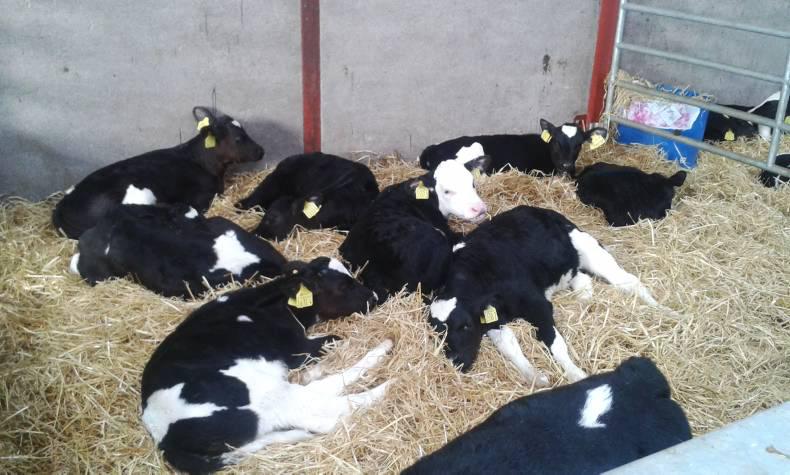
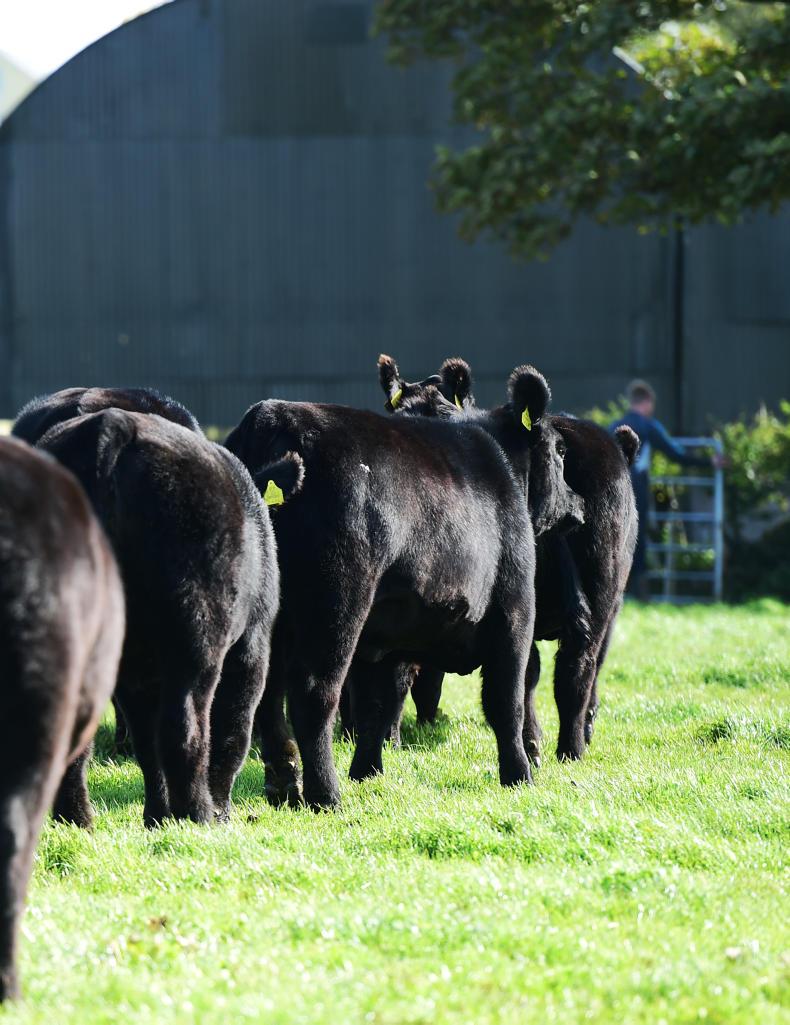

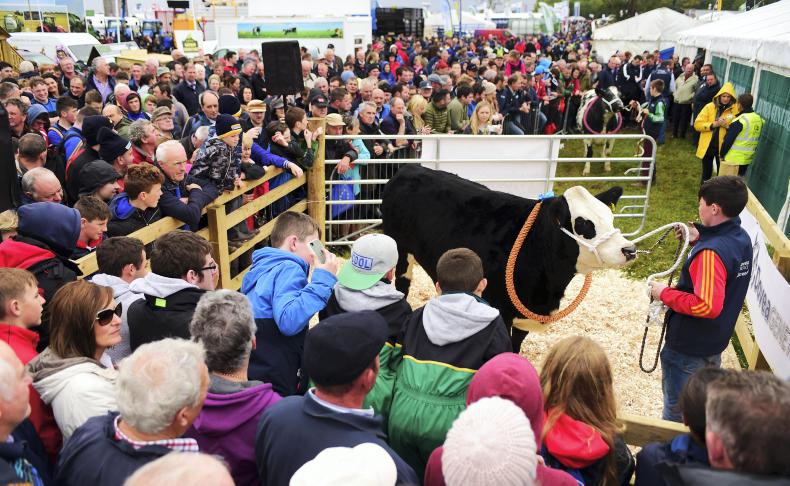
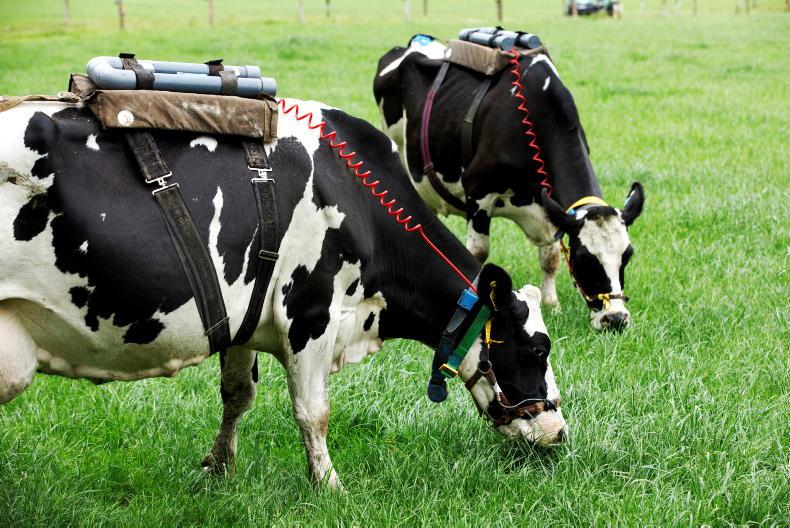
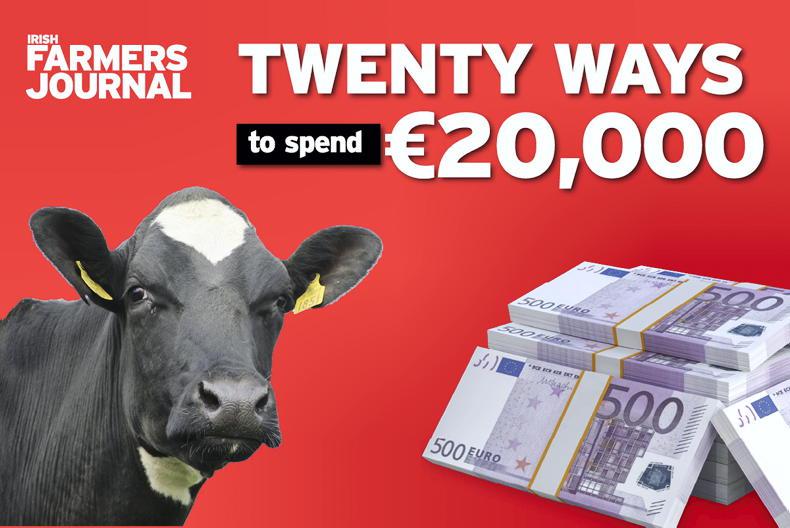
SHARING OPTIONS